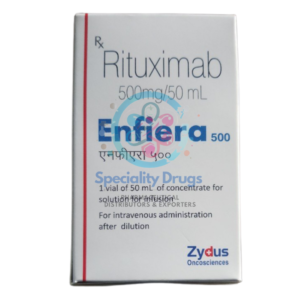What is DACIHEP?
DACIHEP is a prescription antiviral medicine that contains Daclatasvir. It belongs to the class of direct-acting antivirals (DAAs) used for the treatment of chronic Hepatitis C virus (HCV) infection.
What is the use of DACIHEP?
-
DACIHEP is used in combination with other medicines (such as Sofosbuvir) to treat chronic Hepatitis C.
-
It helps reduce the viral load, improve liver function, and prevent complications such as liver cirrhosis and liver cancer.
-
It is not used alone, but always as part of a combination therapy.
Benefits of DACIHEP:
-
Highly effective in achieving Sustained Virologic Response (SVR), meaning the virus becomes undetectable.
-
Oral administration makes it convenient.
-
Helps prevent progression of liver damage, cirrhosis, or hepatocellular carcinoma.
-
Improves long-term quality of life in patients with Hepatitis C.
Side Effects of DACIHEP:
Like all medicines, DACIHEP may cause side effects. Common ones include:
-
Headache
-
Fatigue
-
Nausea
-
Insomnia (difficulty sleeping)
-
Anemia (low red blood cell count) – when combined with other antivirals
Serious but rare side effects:
-
Slow heartbeat (especially when combined with certain other medicines)
-
Allergic reactions such as rash, itching, or swelling
-
Shortness of breath or chest pain
⚠️ Important Note:
-
DACIHEP should only be taken under medical supervision.
-
Dose and duration depend on genotype of Hepatitis C virus, liver condition, and co-administered medicines.
-
Not recommended during pregnancy or breastfeeding unless prescribed.
1. What is DACIHEP used for?
DACIHEP is used with other antivirals (like Sofosbuvir) to treat chronic Hepatitis C infection.
2. Can DACIHEP be used alone?
No, DACIHEP is not effective alone. It is always prescribed in combination with other Hepatitis C medicines.
3. How does DACIHEP work?
It blocks the NS5A protein of Hepatitis C virus, preventing viral replication and reducing viral load.
4. How should DACIHEP be taken?
It is taken orally, usually once daily, exactly as prescribed by your doctor.
5. Can DACIHEP cure Hepatitis C completely?
Yes, in most cases, combination therapy including DACIHEP achieves Sustained Virologic Response (SVR), which means the virus becomes undetectable.
6. What is the usual treatment duration with DACIHEP?
Treatment typically lasts 12–24 weeks, depending on the HCV genotype and liver condition.
7. Can DACIHEP be taken with food?
Yes, DACIHEP can be taken with or without food.
8. What are the common side effects of DACIHEP?
Headache, fatigue, nausea, anemia, and insomnia are the most common side effects.
9. Is DACIHEP safe in pregnancy?
No, it is not recommended in pregnancy. Women of childbearing age should use contraception during treatment.
10. Can I drink alcohol while taking DACIHEP?
Alcohol should be avoided as it worsens liver damage and reduces treatment effectiveness.
11. Can DACIHEP be used in patients with liver cirrhosis?
Yes, but dose adjustments and close monitoring may be required depending on severity.
12. What happens if I miss a dose of DACIHEP?
Take it as soon as you remember. If it’s almost time for your next dose, skip the missed dose. Do not double dose.
13. Can DACIHEP be used in patients with kidney problems?
Yes, but dose and combination drugs must be carefully monitored by a doctor.
14. Are there any drug interactions with DACIHEP?
Yes, it can interact with medicines like rifampicin, phenytoin, carbamazepine, and some HIV drugs. Always inform your doctor of all medicines you take.
15. How should DACIHEP be stored?
Store in a cool, dry place below 30°C, away from sunlight and moisture.






Reviews
There are no reviews yet.